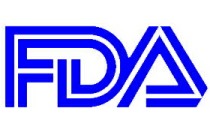The Center for Food Safety has filed a lawsuit against the FDA over food additives. The suit asks the Court to vacate the government’s 1997 proposed rule on generally recognized as safe (GRAS) additives that lets corporations determine if a substance is GRAS or not. CFS wants the agency to go back to its old process of having corporations petition FDA to approve a new additive based on scientific studies. That 1997 rule has never been finalized.
 Food Poisoning Bulletin has told you about this issue before. CFS says that because the government is “indefinitely operating under a proposed rule in lieu of promulgating a final rule, FDA has deprived the public of the vital procedural rights afforded by the Administrative Procedure Act.”
Food Poisoning Bulletin has told you about this issue before. CFS says that because the government is “indefinitely operating under a proposed rule in lieu of promulgating a final rule, FDA has deprived the public of the vital procedural rights afforded by the Administrative Procedure Act.”
CFS says that these actions violate the APA’s rulemaking requirements and exempts substances from food additive regulations. In the 15 years since this rule was proposed, more than 250 food additives have entered the food supply based solely on manufacturer safety claims. Bill Freese, science policy analyst for Center for Food Safety said, “our nation’s food safety agency has become little more than a rubber stamp for the food industry.”
The GRAS list has existed since 1958, when Congress passed a law requiring the FDA to conduct rigorous premarket reviews of food additives and approve or reject them based on scientific evidence. Common ingredients such as sugar and gelatin were exempted from review, since they had been safely used for years. Some of the substances that CFS says have achieved GRAS status since 1997 through the proposed rule that may be risky to human health include Volatile Oil of Mustard, Olestra, and mycoprotein.
Volatile Oil of Mustard has been classified through several studies, including one at the National Institutes of Health, as a potential human carcinogen. Olestra is a fat substitute used in foods that has caused more than 18,000 adverse reactions in people, including anal leakage, severe diarrhea and other gastrointestinal complaints. In addition, Olestra depletes the body of fat soluble vitamins (A, E, D, and K) and lycopene. Finally, mycoprotein is a fungus-basd meat substitute that causes allergic reactions including vomiting, diarrhea, hives, broken blood vessels in the GI tract and eyes, and anaphylaxis.
Under this proposed rule, the FDA does not independently evaluate data supporting a GRAS determination, but instead reviews the corporation’s summary. And this information about the proposed additive is not readily available to the public.
CFS wants the FDA to require any company that is conducting a GRAS determination to provide the FDA with information, minimize the potential for conflicts of interest, and monitor the appropriateness of companies’ GRAS determination through random audits. In addition, the FDA should finalize the rule that governs the notification program, and reconsider the safety of GRAS substances in a more systematic manner.




